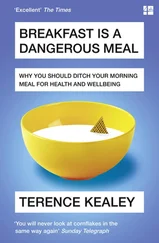At the sound of the language, several men stop and stare at her. Four approach, one with yellow teeth like shellacked maple, another with sea-green eyes. The old man keeps running, hollering at the boy.
The stack of pictures, less the one the boy still has, sits like a brick in her purse. The man with green eyes snatches the bag, embroidered with reeds and a red-throated loon. Asking a question she can’t understand, he holds up a picture. She opens her mouth, but her Arabic has fled. The picture is of R on his thirteenth birthday, his teeth at their largest, his hair its most wild. It is the day she told him the truth.
Hooves clattering in a great arrhythmic panic draw the men’s attention. The camels are being driven back this way by a motorbike careening around potholes. R’s mother presses herself against the tent-city’s wall while the men scatter. The camels go by and the bike skids to a stop. She climbs on behind the boy, who just manages to restart before the men put it all together and chase them down the street, hollering in Arabic, “Stop, you Jew, stop!”
“We have to go back!” she shouts. “They have my pictures!”
The boy firmly shakes his head.
Khan Yunis goes by in gray, the occasional flash of red or purple through the open door or half-wall of a destroyed home. R’s mother closes her eyes and releases her breath in short, shallow puffs, trying to fuse all two hundred and six bones into one solid structure. Pebbles kicked up by the bike’s wheels sting her ankles.
Several minutes later, having lost their pursuers, they slow to a speed barely able to keep them upright, punctuated every few seconds by a sudden leap forward, as if the bike were being prodded by a whip. The boy stops in the rubble street where his friends were playing. “It’s late,” he says, “good luck,” then begins running — not fast, like escape. More like exercise. But fast enough for her to know she can’t keep up. Except he has her only picture. Without it, she can’t find her son.
R’s mother runs. A knife in her side, pounding heart, burning feet. It is only because the boy runs for fun, out of habit, that she is able to keep him in sight. All the streets look the same, and she knows if he makes even a single turn without her seeing, all will be lost.
She rounds a corner, eyes tracking every direction. In front of a building like all the rest, the boy is talking to a woman who, by her unabashed chastising, can only be his mother. She is pointing inside, then down the block. He should go, then come right back.
R’s mother hangs back until the boy reaches the next block, then makes her way toward his mother. She is wringing out a towel, the water forming dark bubbles in the sandy street. As the woman turns to go inside, shoulders stiff and bent toward some urgent task, the ululating voice calls out. Over it a cry escapes the house, and she quickly shuts the door.
R’s mother knows that cry.
Cautiously, she nudges open the door. In the back room of the two-room home a sheet hanging from nails in the ceiling partially conceals a woman in labor. When the boy’s mother touches the rag to her forehead, she turns, and R’s mother sees an elegant nose, high cheekbones, wet eyes. But she is not a woman; she is a girl.
“Can I help?” R’s mother asks.
The story unspools quickly after the boy returns with the water. He thrusts R’s photo at his mother, summarizes their afternoon of seek and flee, then explains the girl’s plight. She is the daughter of his mother’s childhood friend. Unmarried, she ran away from her home in a town north of here to hide from her brothers.
“If they find her,” he says, “they will kill her.”
The statement is equally true of R’s mother. The boy’s mother insists she leave. “You endanger us.”
The girl’s labor isn’t progressing well, and when R’s mother tells them she is a nurse and offers to check the baby’s position, the boy’s mother relents.
The baby is face up, with a shoulder lodged down. R’s mother explains what needs doing. As she works, the girl whimpers and the woman hushes her, afraid the neighbors will hear.
Once the baby is righted, R’s mother prepares to leave, but the girl grabs her arm. “Don’t go.”
Though the sun has set and the mourning voice must have called out, none of them hear it. They don’t become aware of the call to prayer until the final voice of the day, by which time they’ve undressed the girl to a thin white shirt soaked with sweat. R’s mother massages her feet while the boy and his mother kneel and rise, kneel and rise by the light of candles, their shadows pulsating on the wall like hearts imaged with sound waves. The world has been praying for thousands of years. When, R’s mother wonders, does God plan to answer?
After prayer, the boy’s mother goes to blow out the candles.
“I need to see,” R’s mother objects.
“They will be wondering,” the woman says, “after Isha.” This is the name for when all the light has left the sky. A house with precious candles lit so late will arouse suspicion.
R’s mother considers how to hurry things along. “I need something to break her water.”
It takes several minutes to put her meaning across, but finally the woman sends the boy into the front room, where under a floorboard he’s hidden a bag of scrap metal.
“I sell it,” he explains, laying out the bag’s contents — copper wires, screws with damaged threads, shavings, one and two-inch pieces of pipe cutoffs. The copper could work. It’s stiff enough to offer pressure, flexible enough to bend into a hook.
They sterilize the wire in boiling water, then R’s mother ruptures the amniotic sac and the contractions intensify. The girl bites a rag while the woman describes her own labors. They all end happily, with shining baby and tired mother.
The girl looks to R’s mother. “What about you?” she sputters around the rag. “You have a son. Was his birth easy?”
R’s mother wipes her brow and smiles. “Happiness is sometimes the other side of another’s misery.” But she is speaking Hebrew, so the girl smiles back, assuming the best.
Another contraction begins. R’s mother cups the girl’s kneecaps in her palms. “I see a head,” she says in Arabic. “Push, press down hard.”
The girl lifts herself on her elbows, clenches her teeth, and lets out a tiny squeal. The baby’s full head emerges. With a great huff, the girl lies back. “Tell us in Arabic,” she says. “Your birth was safe?”
R’s mother cradles the baby’s forehead, waiting for the next contraction to release the shoulders. “My boy came from the earth,” she says.
“Did you grow him on a vine?” the girl smirks.
From the other side of the curtain the boy says, “I bet he was a root vegetable, like a potato.”
His mother leans around the sheet to give him a dirty look, but he and the girl continue to giggle until the next contraction takes them by surprise and the girl lets loose a soft scream.
“We’re almost there,” R’s mother says.
The woman lifts the girl by her shoulders, and as she pushes, R’s mother tells her story.
The year her son was born quakes shook old Byzantium, the earth mother’s tectonic bones grinding against one another until a final shudder pushed him free, a dark-haired, olive-skinned infant set adrift in disaster’s bulrush and washed up in the rubble of an Istanbul street. She was there as part of a medical emergency crew when he was brought in. No identification, no way to track down family. She cared for him for two months, waiting for someone to come looking, but no one did. No Kurd, Turk, Greek, Muslim, or Christian. So she took him home. “Why not?” she says. He was as likely to belong to a barren Israeli Jew as to anyone.
Читать дальше












